
10 Nov – A riot has erupted at a controversial offshore refugee-detention facility in Australia following the death of an asylum seeker.
Immigration officers and refugees confirmed on Monday a standoff between detainees and officers at the detention camp on Christmas Island, located more than 2,000km northwest of Perth in the Indian Ocean, after a Kurdish Iranian refugee died there.
Fazel Chegeni, in his 30s, was reportedly found at the bottom of a cliff.
“On Saturday morning [November 7] the department was advised of the escape of an illegal maritime arrival from Christmas Island Immigration Detention Centre [CI IDC] by service provider staff.
“The matter was referred to the Australian Federal Police who commenced a search and discovered a deceased person today [November 8],” the Australian government said in a news release.
The Department of Immigration said staff and security have been withdrawn for security purposes and denied a large scale riot was taking place.
“The protest action began when a small group of Iranian detainees took part in a peaceful protest following the escape from, and death outside the centre, of a detainee on Sunday,” its news release said.
Currently, there are about 285 asylum-seekers at the Christmas Island camp. Section 501 of Australia’s Migration Act permits the deportation of a non-Australian citizen who fails the “character test”, the portal for which includes any prison sentence longer than 12 months.
A member of RISE, a rights group campaigning for refugee rights in Melbourne, said refugees heard the Iranian man screaming for help, then later saw him in a body bag.
“The detention centre detains asylum-seekers under administrative detention methods, just like Guantanamo and just like Palestinian prisoners in Israel,” she told Al Jazeera over the phone.
“These cases cannot be taken to court and the refugee him or herself sometimes does not know what they are doing there.
“They could claim they are investigating the asylum seeker, but in the end it is punishment.
“Those who arrive by boat are not allowed to have mobile phones with them, but those who arrive by plane are.
“And if they manage to sneak in mobile phones, security does random checks where they take them away.
“Between 2010 and 2011, there were five deaths in eight months in a detention centre in the suburbs of Sydney.
“Two detention centres were destroyed following that.
“The government does not learn from its past experiences.”
Twenty-five-year-old detainee Matej Cuperka told the ABC that ex-convicts who had their Australian visas cancelled after serving time in jail started the riot.
“The death [of the Iranian man] is very, very suspicious,” he said.
“They [the inmates who are rioting] believe Serco officers did something to him.
“I clearly heard him in the morning screaming for help, and the next thing I see they be bringing him in a body bag, and after that the whole place went into lockdown.
“About 30 people started a fight with the emergency response team in front of the medical [clinic] where officers left their stations and put the place in lockdown.”
“They are setting fires everywhere,” Mr Cuperka added.
“They started [on Sunday night]. They have broken into the canteen, into the property area, they started fires over there and now they starting in the compound.
“There are cars full of officers driving around the complex. They are just having a look through the window,
Another detainee, who stressed that he had not been involved in the riots, said “most of the compounds have actually been broken into, including the medical [compound]”.
“The canteen, I can see from where I’m standing now, has been completely ransacked and is burning as I speak to you,” he said.
“It’s a complete disaster zone.
“The compound that I’m in … there’s a lot of spot fires in there, all the cameras have been smashed up, all the kitchen has been smashed up, the offices have been breached and all the computers and everything has been broken up.”
Continue reading “Christmas Island: Riot at Australian detention camp after refugee’s death”









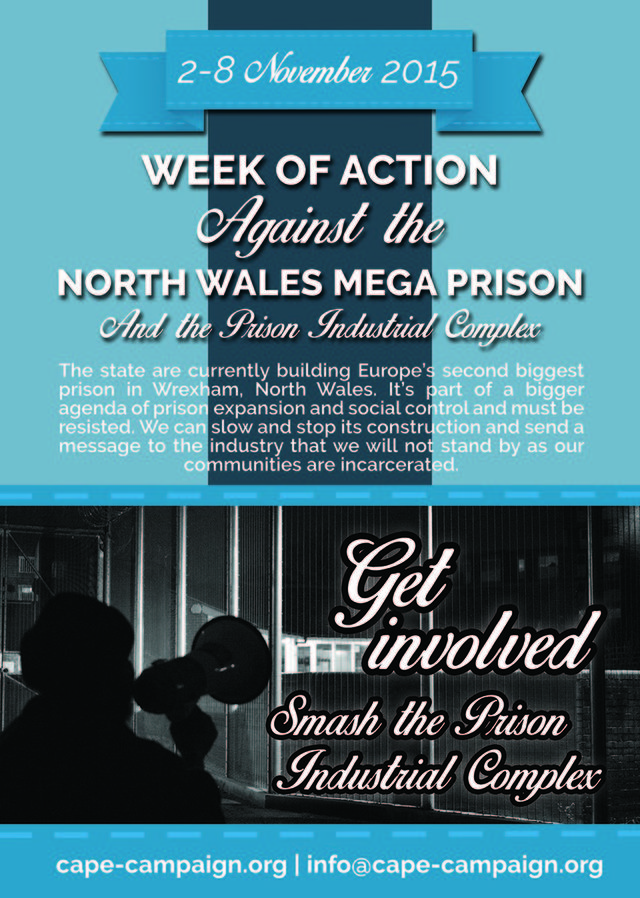


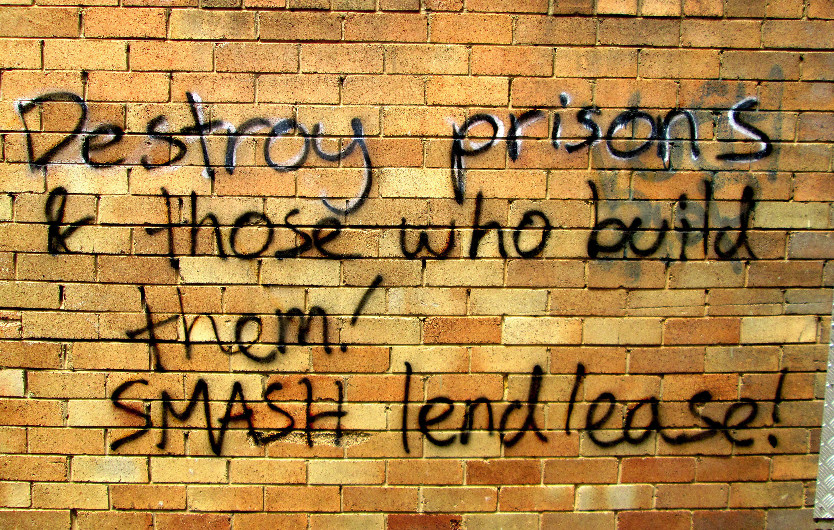

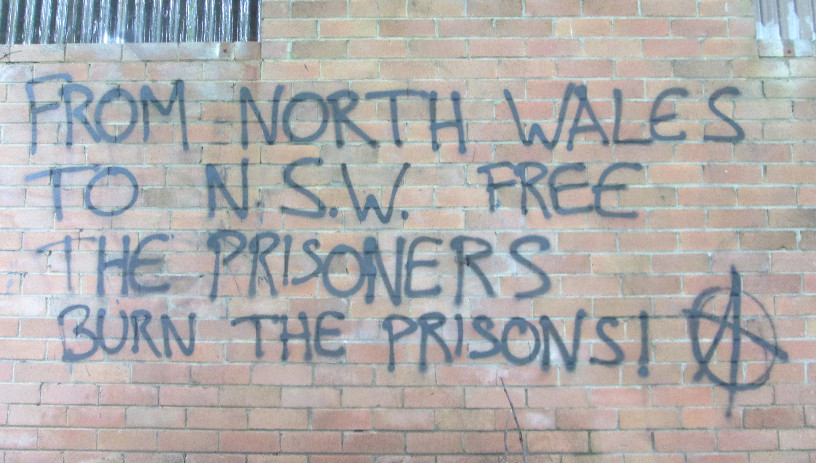


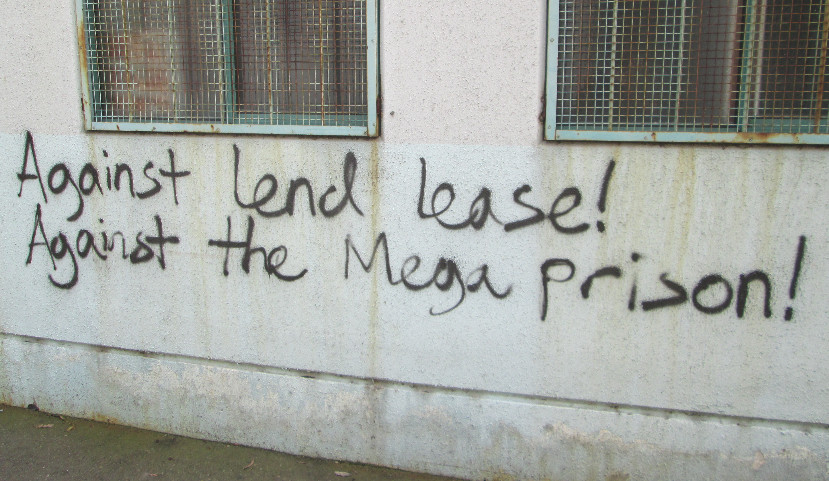











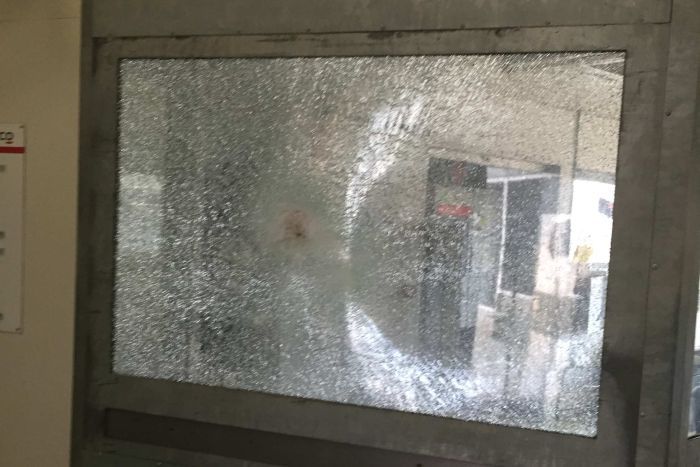




 “The Commonwealth of Australia does not have consent or a treaty to enter Yidindji territory.” Photo: Ben Rushton
“The Commonwealth of Australia does not have consent or a treaty to enter Yidindji territory.” Photo: Ben Rushton
